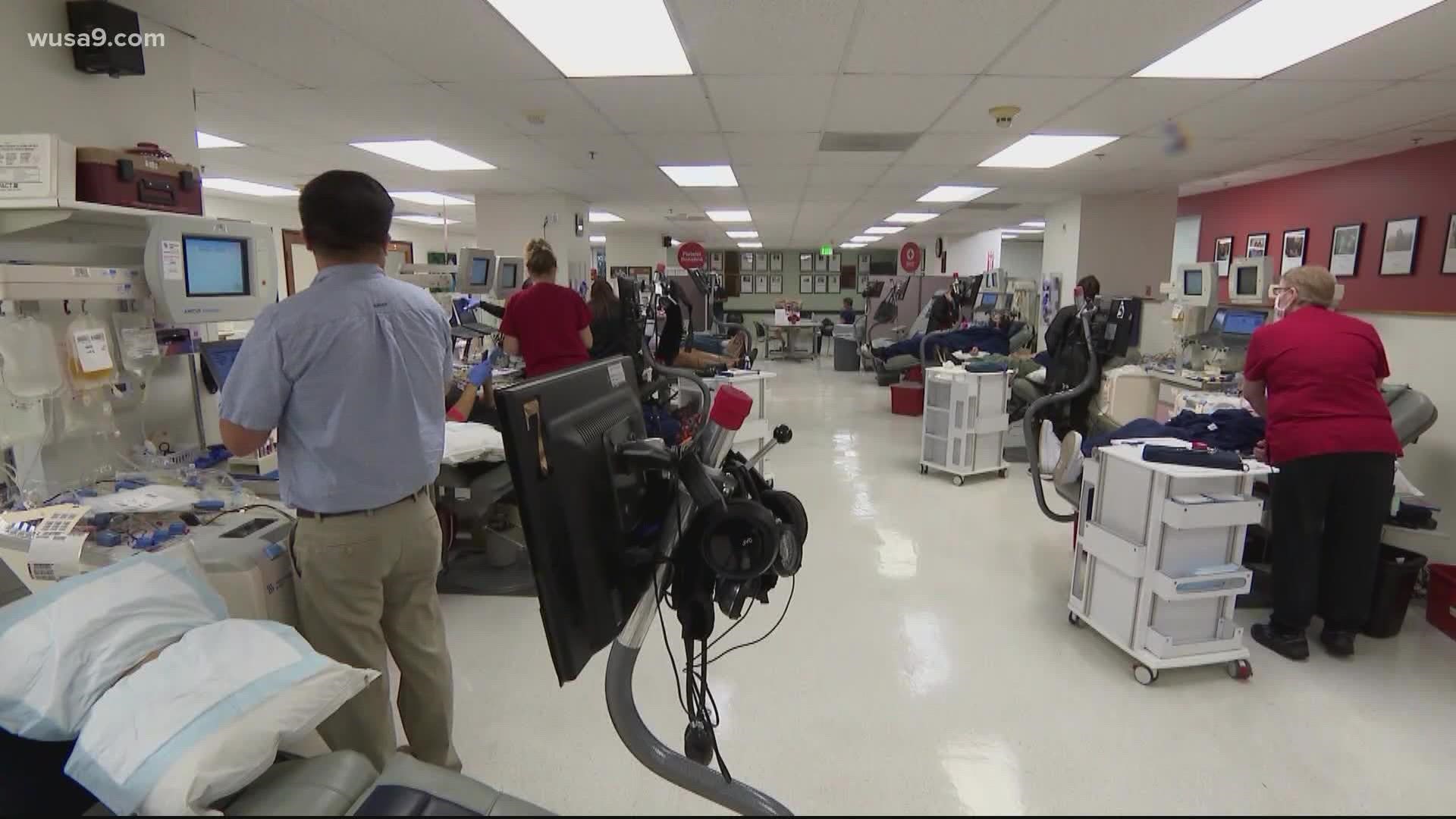WASHINGTON — Two weeks after her fourth birthday, Ella Kabe's parents took her to the hospital for a stomach ache. Hours later, she was admitted to the oncology department.
Ella was diagnosed with kidney cancer. She spent the next nine months in treatment, with 35 rounds of chemo, radiation and blood transfusions.
So many people like Ella rely on those blood donations. But right now the national blood supply is so low as the COVID-19 pandemic continues, the American Red Cross has declared its first ever national blood crisis.
Ella is now cancer free, but blood donations are part of the reason Ella is alive today.
"You’re giving the gift of life. Right here. This is someone who received blood and it saved her life. One night Ella was in the hospital and she required 9 units of platelets in one night," said her mother, Kate Kabe.
The Red Cross said Tuesday it's seen a 10% decline in the number of people donating blood since the pandemic began. The decline coincided with the emergence of the delta variant of COVID-19 followed by the omicron variant now. Donor turnout is down, blood drives have been canceled and there have been staffing shortages, the organization said.
"We are seeing the blood supply at the lowest it's been in ten years," said Ashley Henyan, Communications Director for the National Capitol and Chesapeake Region Red Cross.
Dr. Meghan Delaney is the director of transfusion medicine at Children's National Hospital. She says no one ever plans to get a blood transfusion, so always having an abundant supply is crucial.
"Often blood transfusions are needed in life threatening emergencies such as car accidents and emergency surgery," said Dr. Delaney.
From NICU babies, to cancer patients, to surgeries, the need for blood in hospitals is constant. The Red Cross has to collect about 12,500 pints of blood across the country every single day to meet hospital demand.
In the DMV, they need to collect 340 pints a day to provide blood to more than 50 hospitals.
Doctors say they are doing everything they can to make sure those critical patients get what they need. But they also need the community to step up.
"Blood is a very precious resource. We can’t manufacture it in a lab. We can only get it from each other," said Dr. Delaney.
To sign up to donate, click here.
Children's National Hospital also has its own blood donation center. All of that blood goes directly to pediatric patients. A spokesperson for the hospital says even if you aren't eligible to donate, you can host your own blood drive.

